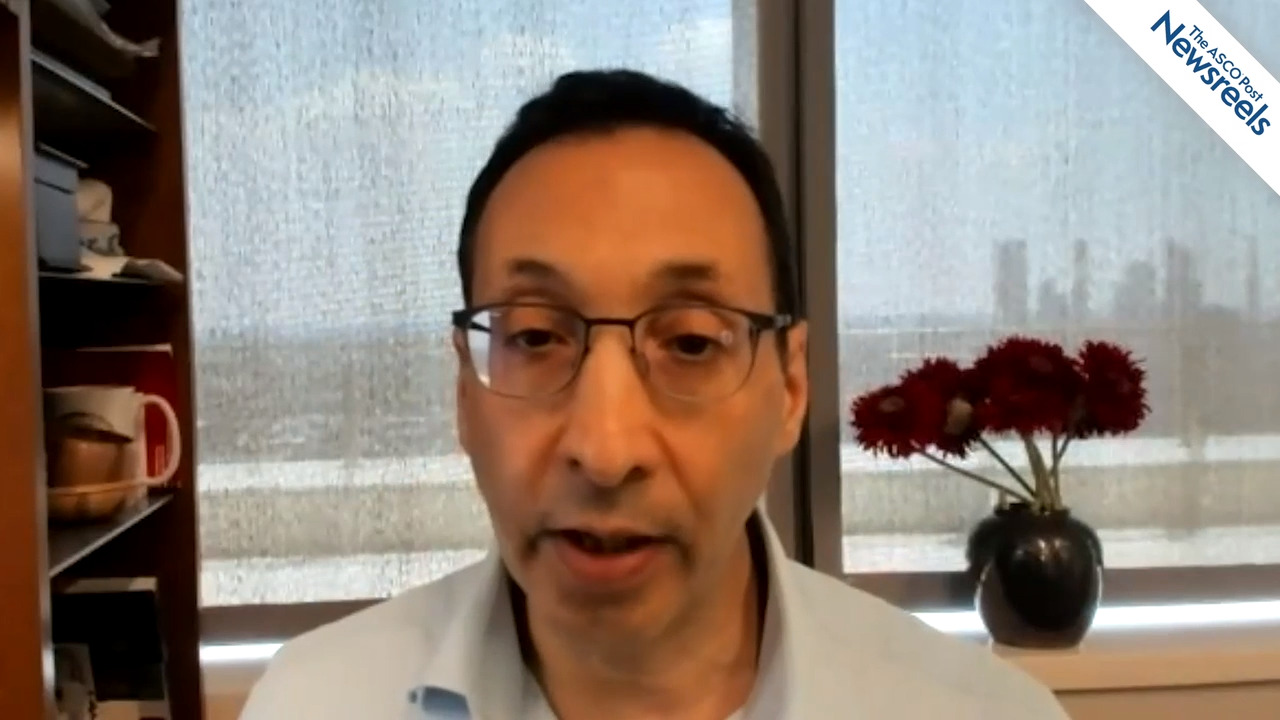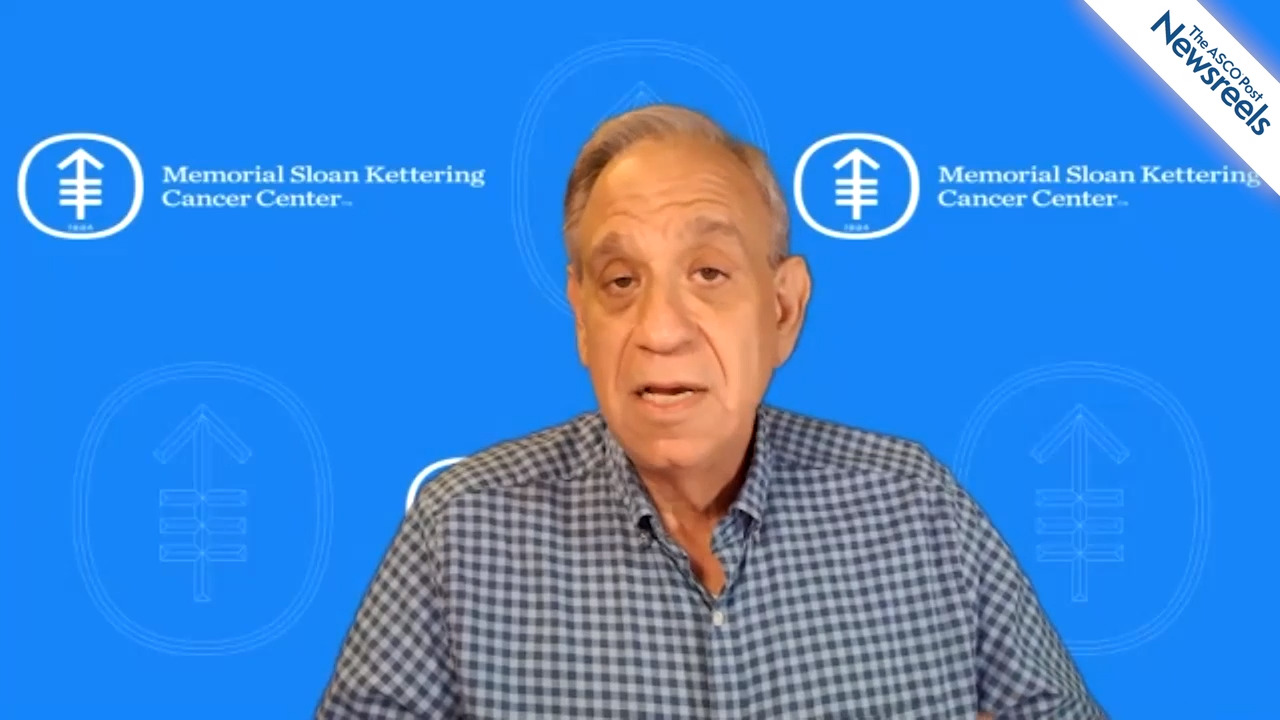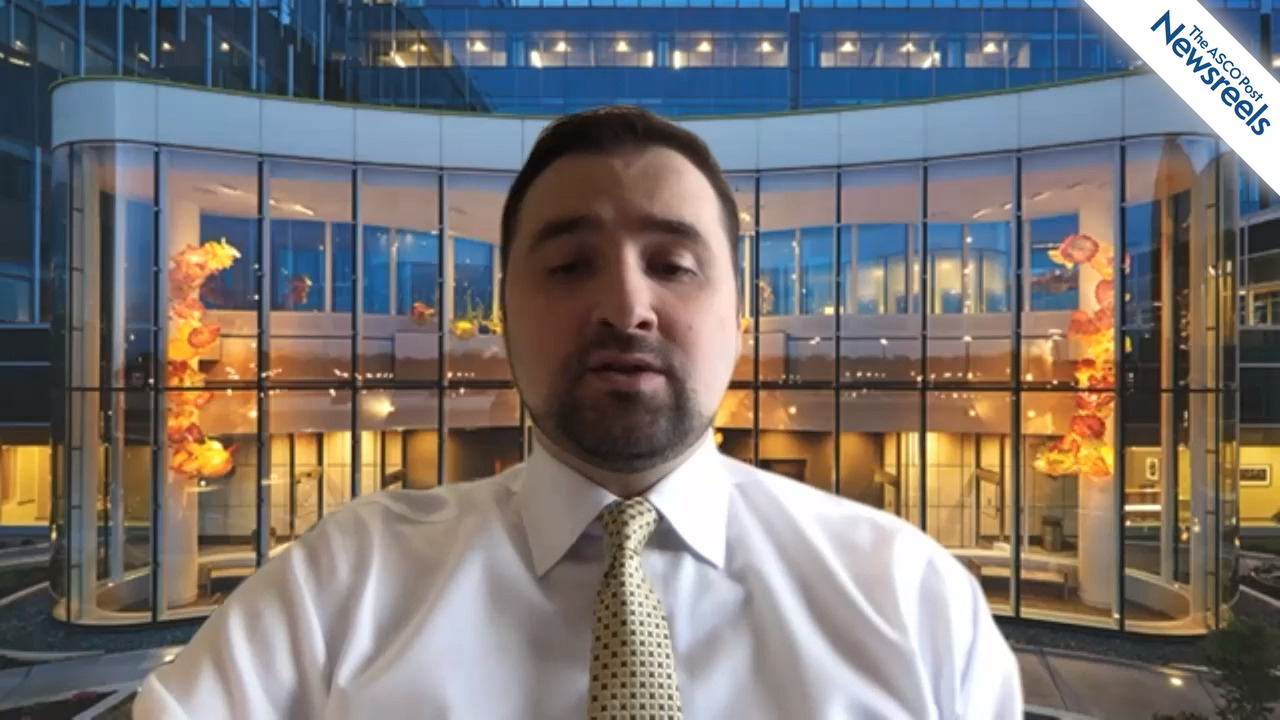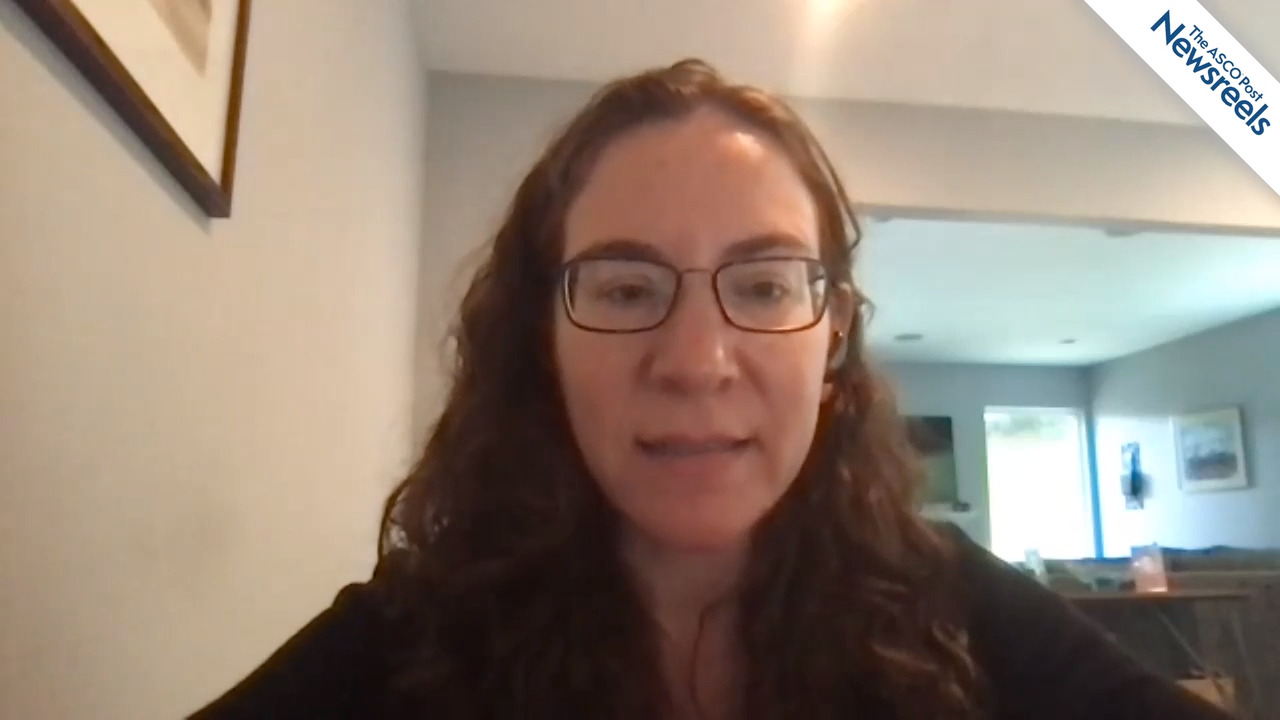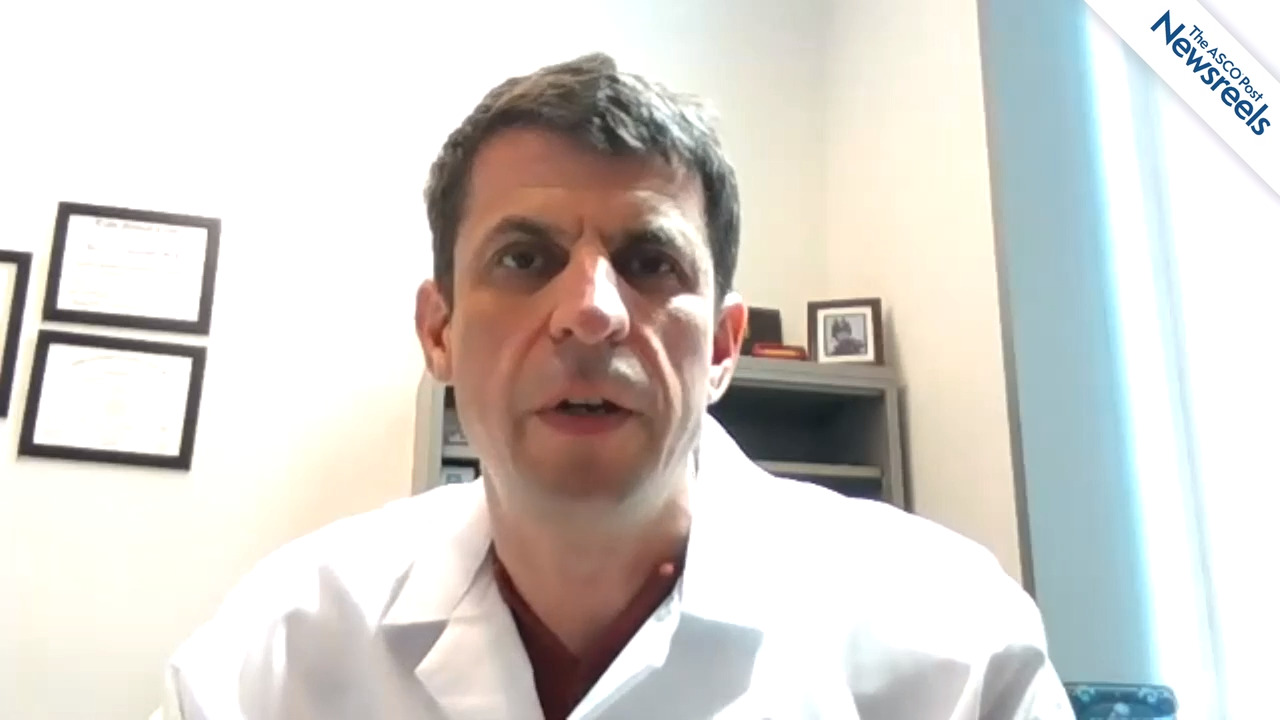Sonali M. Smith, MD: Can CNS Prophylaxis Prevent Secondary High-Grade B-Cell Lymphomas?
2021 Pan Pacific Lymphoma Conference
Sonali M. Smith, MD, of the University of Chicago, discusses the many uncertainties in preventing secondary high-grade B-cell lymphomas, which have a poor prognosis; how to discern the patients at highest risk; and whether prophylaxis with monoclonal antibodies such as rituximab can mitigate the likelihood of secondary lymphoma.
The ASCO Post Staff
Steven M. Horwitz, MD, of Memorial Sloan Kettering Cancer Center, discusses treatments for advanced mycosis fungoides and Sezary syndrome, including brentuximab vedotin and mogamulizumab, and how best to choose among treatments.
The ASCO Post Staff
Andrew D. Zelenetz, MD, PhD, of Memorial Sloan Kettering Cancer Center, discusses the role of minimal residual disease evaluation in the treatment of non-Hodgkin lymphoma, techniques used to predict relapse such as immunosequencing and CAPP-Sequencing, and whether such assays could replace the use of imaging with its attendant radiation exposure.
The ASCO Post Staff
Muhamed Baljevic, MD, of the University of Nebraska Medical Center, reviews the outlook for treating patients with relapsed and refractory multiple myeloma, the rapidly expanding array of therapeutic options with novel mechanisms of action, and the challenges of sequencing treatments.
The ASCO Post Staff
Alison J. Moskowitz, MD, of Memorial Sloan Kettering Cancer Center, discusses the combination ABVD (doxorubicin, bleomycin, vinblastine, and dacarbazine), individualized approaches for treating patients with Hodgkin lymphoma, and novel methods for risk stratification.
The ASCO Post Staff
Alexey V. Danilov, MD, PhD, of City of Hope, discusses the uses and side effects of cellular and immune therapies, including venetoclax and obinutuzumab, which may prove to be effective in treating highly resistant lymphoid malignancies such as chronic lymphocytic leukemia.
